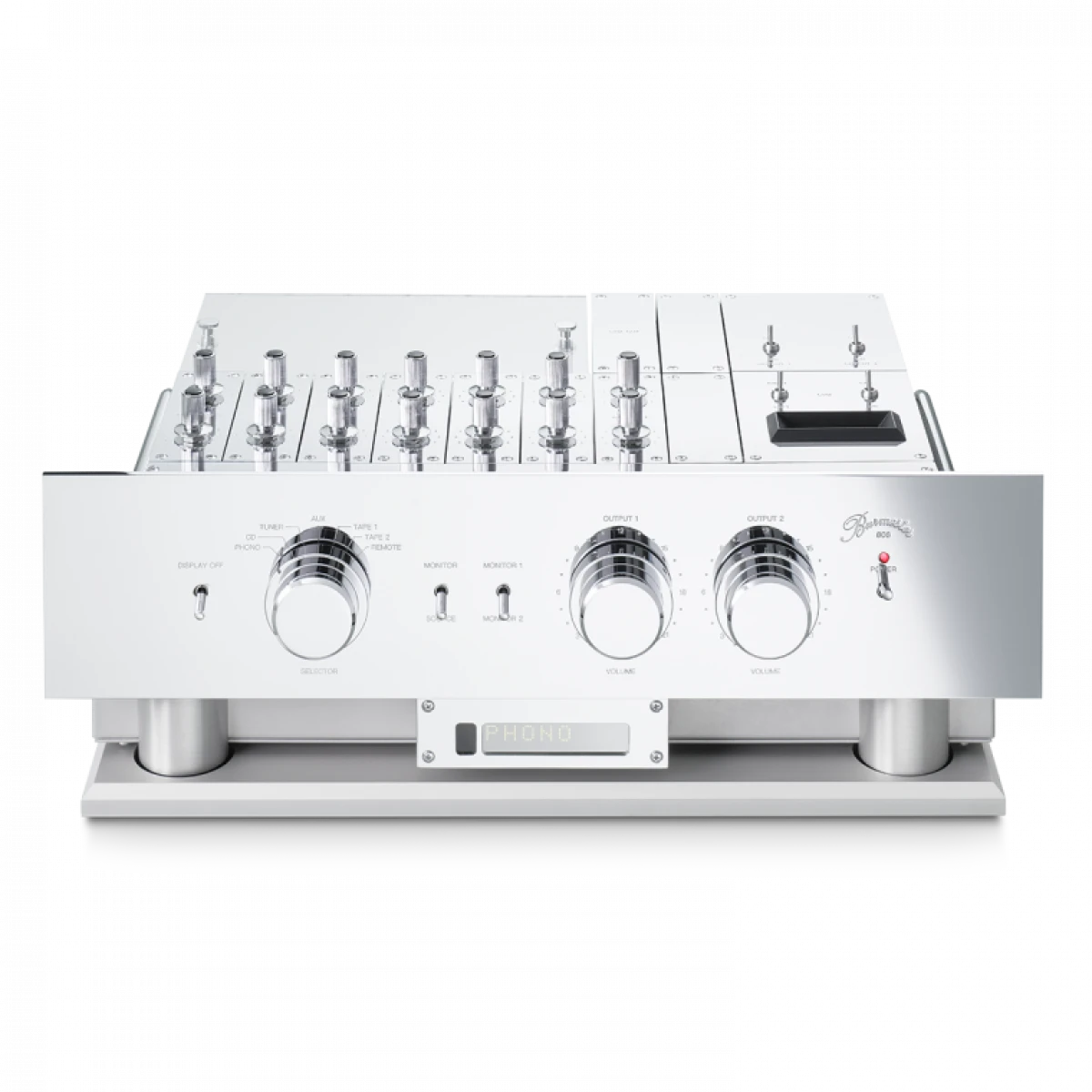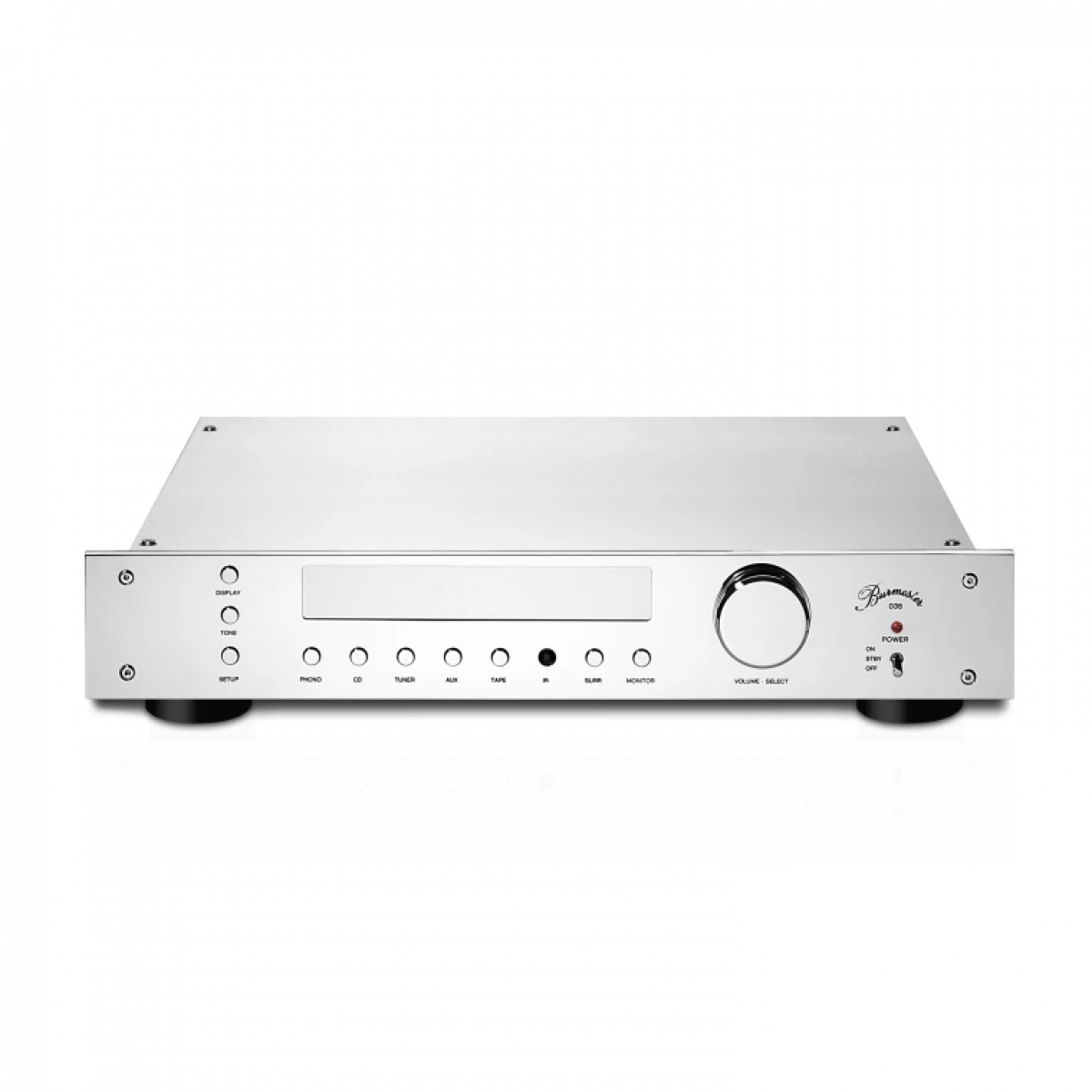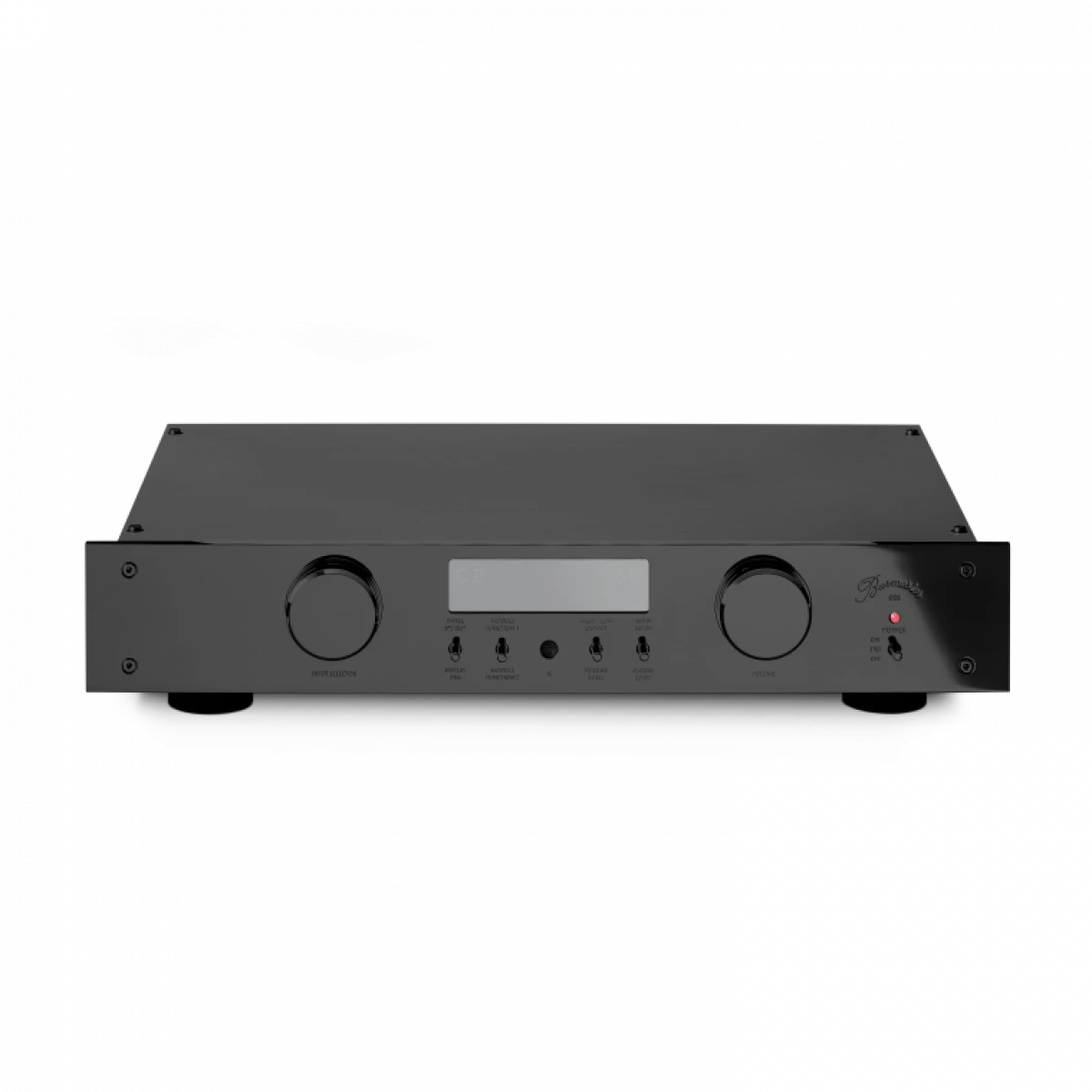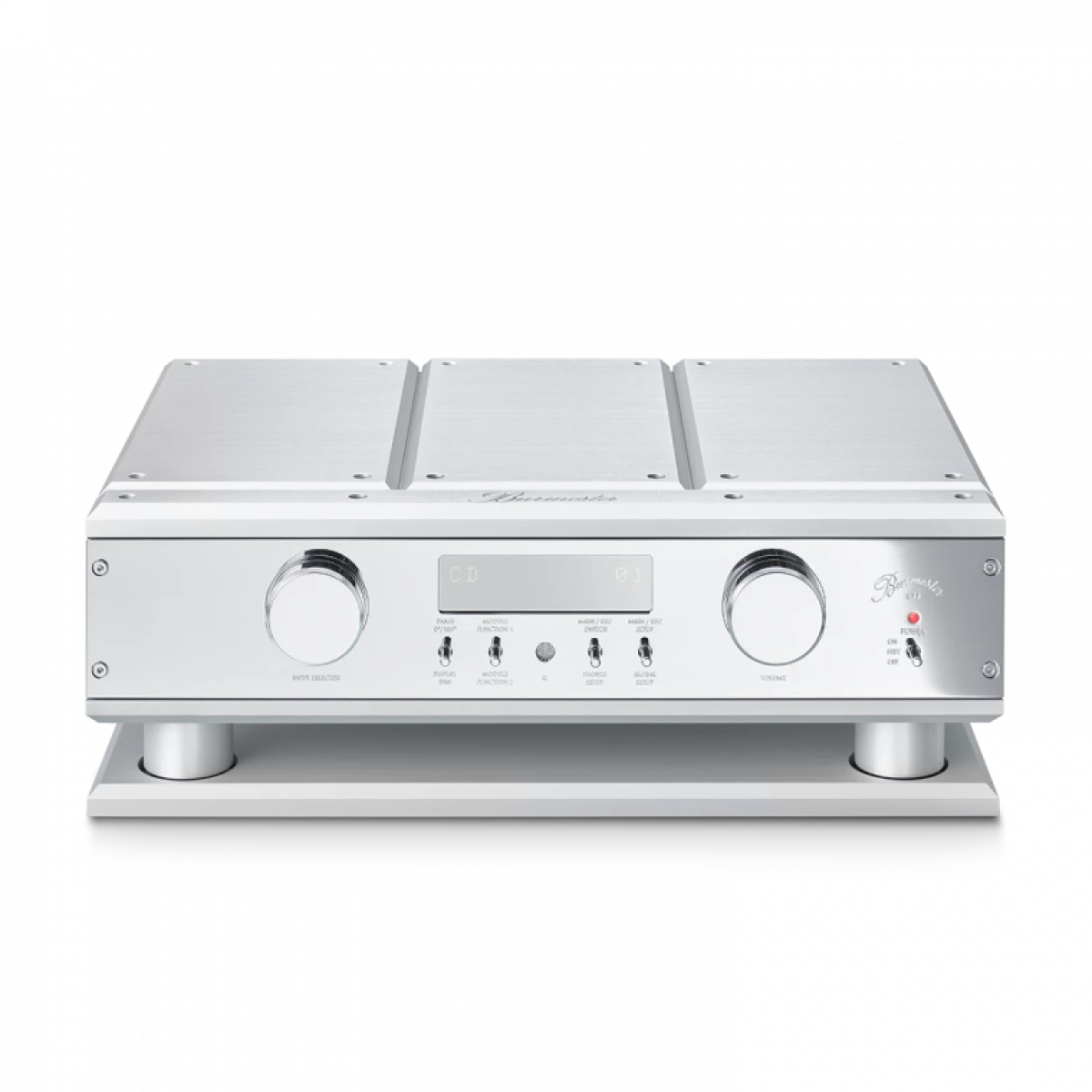Preamplifiers — Burmester 100
Description, images, technical data and specifications
Burmester 100
Image source — © Burmester
The Preamp 100 includes all the company's innovative technologies and the best components, ensuring high-quality operation.
Specifications
Model name
100
Analog inputs (balanced)
N/A
Analog inputs (single-ended)
N/A
Analog outputs (balanced)
1
Analog outputs (single-ended)
1
Gain (dBu)
N/A
Input sensitivity (mV)
N/A
Output voltage (V)
N/A
Input impedance (balanced) (Ω)
N/A
Input impedance (single-ended) (Ω)
N/A
Output impedance (balanced) (Ω)
N/A
Output impedance (single-ended) (Ω)
N/A
Maximum output level (balanced) (dBu)
N/A
Maximum output level (single-ended) (dBu)
N/A
Volume control range (dBu)
N/A
Frequency response low +/- 3dB (Hz)
N/A
Frequency response high +/- 3dB (Hz)
N/A
Signal to Noise Ratio (SNR, unweighted) (dB)
N/A
Total Harmonic Distortion + Noise (THD+N) (%)
N/A
Dimensions (mm)
482 × 96 × 344
Weight (kg)
9
Official link
More components

Preamplifiers
Burmester 808 MK5

Preamplifiers
Burmester 035

Preamplifiers
Burmester 088

Preamplifiers
Burmester 077


